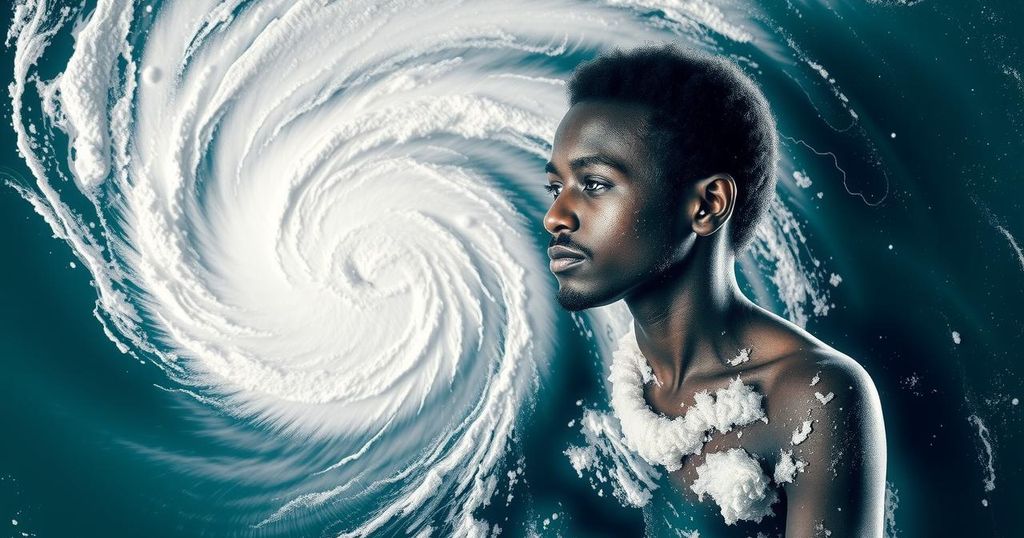Devastation in Mayotte and Southeastern Africa Following Cyclone Chido
Cyclone Chido has devastated Mayotte and southeastern Africa, resulting in thousands presumed dead, severe injuries, and extensive property damage. As search and rescue efforts continue, humanitarian concerns about famine and disease are rising. The cyclone reflects the growing intensity of climate change-related storms, prompting fears of future disasters.
Cyclone Chido has wreaked havoc across the French territory of Mayotte and southeastern Africa, leading to significant destruction throughout the region. The cyclone’s impact has devastated infrastructure, collapsing homes, schools, and vehicles, with tens of thousands of individuals presumed dead in Mayotte alone. As ongoing search and rescue operations continue, local authorities report 22 confirmed fatalities and 1,400 injuries, with the death toll anticipated to rise.
In southeastern Africa, the situation is similarly grim. Mozambique reported 45 deaths due to the cyclone, with approximately 500 individuals injured. Meanwhile, Malawi has adjusted its death toll from seven to thirteen. Estelle Youssouffa, a deputy for Mayotte, highlighted the plight of undocumented migrants who have been disproportionately affected by the storm, stating, “The real toll of those swept away by the mud, winds, and tin from shantytowns will never be known.”
The cyclone inflicted unprecedented damage, particularly in Cabo Delgado province of Mozambique, where it destroyed over 35,000 homes and left approximately 186,000 children without access to education. With the region currently facing a humanitarian crisis, the lack of adequate food and water supplies has raised alarming concerns about famine and disease.
Mayotte is experiencing extended power and water outages, complicating rescue efforts and communication among residents. Looting has reportedly increased in the absence of electricity, posing additional challenges for local authorities. Alexis Duclos, editor-in-chief of Flash Infos, emphasized the chaotic situation, saying, “The situation remains chaotic. A large part of Mayotte still does not have electricity or water.”
As residents brace for more adversities, concerns revolve around the approaching cyclone season, aggravated by climate change effects that contribute to increasingly severe storms. Darkaoui Hakim, who was away during the cyclone, expressed fears regarding future storms, remarking, “What worries me is that we are only at the beginning of the cyclone season… I am afraid there will be another one and there will be chaos.”
In response to the tragedy, French President Emmanuel Macron plans to visit Mayotte, coinciding with a declaration of national mourning to honor the victims of this catastrophic event. Authorities and local leaders continue to stress the critical need for food and water to address immediate humanitarian concerns and prevent further fatalities.
Cyclone Chido struck Mayotte and surrounding southeastern African regions, leading to a humanitarian crisis characterized by high death tolls, significant injuries, and infrastructure damage. Areas previously experiencing vulnerability due to overpopulation now face compounded challenges following the natural disaster. As climate change intensifies storms’ severity, the cyclonic season poses ongoing risks for the region, heightening concerns over future disasters and the socio-economic stability of the affected populations.
The aftermath of Cyclone Chido has devastated Mayotte and southeastern Africa, with extensive loss of life and severe humanitarian concerns. As authorities grapple with the challenges of recovery amid infrastructure collapse, the potential for famine and disease looms large. The sentiment of fear surrounding future storms underscores the urgent need for robust disaster preparedness strategies and support mechanisms for the most vulnerable populations.
Original Source: www.thetravel.com




Post Comment